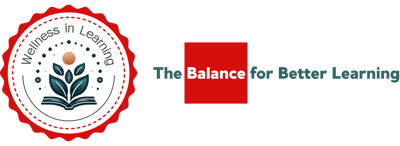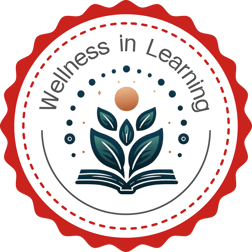Wellness in Learning Certification for Schools
Transform Your School Culture Through Science-Backed Wellbeing Standards
The Wellness in Learning® (WIL) Certification is an evidence-based assessment system that evaluates and supports schools in fostering a holistic culture of well-being. It is grounded in neuroscience, educational innovation, and community well-being.
Earn a recognized distinction in well-being for your school that reflects your commitment to people-centered and brain-respectful learning environments.
Why pursue Wellness in Learning Certification?
Achieving Wellness in Learning Certification is not just an investment in the well-being of your educational community; it is a strategic decision supported by concrete data that directly impacts your institution's outcomes and sustainability:
Improved Academic Performance:
Studies consistently demonstrate a positive correlation between student well-being and academic achievement. For example, research has found that students with better mental and emotional health tend to achieve higher grades and show greater engagement with learning.
Comprehensive well-being programs can improve students' concentration, memory, and executive functions. Meta-analyses of social and emotional learning (SEL) interventions in schools have revealed significant improvements in students' academic skills.
The reduction of stress and anxiety, addressed by well-being initiatives, is associated with better performance on tests and evaluations. Academic stress is a major source of stress for students, negatively impacting their performance.
Reduced Absenteeism and Increased Attendance:
Physical and mental health issues are significant causes of school absenteeism. By promoting well-being, certification can contribute to a decrease in illness rates and other factors leading to absence.
Students who feel supported and connected in a school environment that prioritizes well-being are more likely to attend classes regularly. A positive school climate, fostered by well-being initiatives, is linked to higher attendance.
Improved Behavior and Discipline:
Emotional and social well-being is directly linked to behavior regulation. Students with tools to manage their emotions are less likely to engage in disruptive behaviors.
SEL programs, a key component of well-being in learning, have been shown to reduce behavioral problems and increase prosocial behaviors. This creates a safer and more productive learning environment for everyone.
Increased Staff Retention and Satisfaction:
Stress and burnout are significant issues among educators. A school environment that values staff well-being can reduce professional burnout and improve talent retention.
Teachers and staff with greater well-being tend to be more engaged, motivated, and satisfied with their work. This translates to higher quality teaching and a more positive school atmosphere.
Wellness in Learning Certification can be seen as an investment in the school's human capital, which can improve morale and a sense of belonging.
Potential Return on Investment (ROI):
Although measuring direct ROI in education can be complex, improvements in academic results, reduced absenteeism, and increased staff retention can translate into long-term savings and a better reputation for the institution.
Schools with a strong focus on well-being can be more attractive to parents, students, and staff, which can positively influence enrollment and talent acquisition.
Certification can provide a structured and evidence-based framework for implementing effective well-being initiatives, maximizing the impact of invested resources.
In summary, Wellness in Learning Certification offers an evidence-based roadmap for creating a healthier, happier, and more productive school environment. Statistics demonstrate that prioritizing well-being is not an expense, but a strategic investment that can generate significant benefits in academic performance, attendance, behavior, and the overall well-being of the entire educational community, contributing to the long-term success of your institution.
Together, we can make your educational institution a community of growth and well-being for all.


Together, we can make your educational institution a community of growth and well-being for all.
"


Articles
Nelly Montoya
CEO & Founder
"From the neural pathways of memory consolidation to the neurochemical symphony of attention, well-being isn't a soft skill in learning; it's the fertile ground where knowledge takes root and flourishes."


info@wellnessinlearning.com
The name Wellness in Learning® and NeuroNeural®, the logos, and slogans constitute industrial property and are or may be in the process of being registered with the relevant authorities. Therefore, any unauthorized reproduction of these by any means is prohibited.
© Wellness in Learning 2025. All rights reserved.


